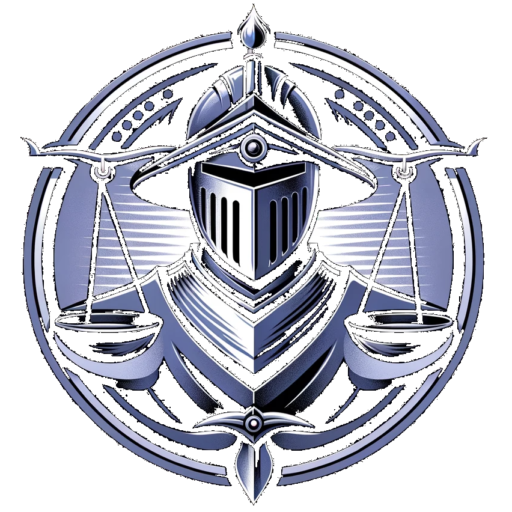“Unveiling Shadows: The Revelations and Repercussions of Operation Marques”
Introduction
“From Secrecy to Scandal: The Exposure and Aftermath of Operation Marques” is a comprehensive examination of a significant political and legal event in Portugal that came to light in 2014. The operation, named “Operação Marquês,” involved a high-profile investigation into allegations of corruption, money laundering, and tax fraud. The scandal centered around José Sócrates, the former Prime Minister of Portugal, and several other prominent figures from the worlds of business, banking, and politics. The exposure of Operation Marques sent shockwaves through Portuguese society, raising questions about the integrity of the country’s political and financial systems. The book delves into the intricate details of the investigation, the subsequent legal proceedings, and the broader implications for transparency and accountability in public office. It provides an in-depth look at the events that unfolded, the public reaction, and the long-term impact on Portugal’s political landscape.
The Unveiling of Operation Marques: A Timeline of Events
From Secrecy to Scandal: The Exposure and Aftermath of Operation Marques
In the annals of clandestine operations, few have unraveled with such dramatic and far-reaching consequences as Operation Marques. Initially shrouded in the utmost secrecy, the operation’s exposure has since sent shockwaves through the corridors of power, revealing a complex web of intrigue and prompting a reevaluation of oversight mechanisms within intelligence communities.
The inception of Operation Marques can be traced back to a series of discreet meetings among high-ranking officials, who, under the guise of national security, authorized a covert surveillance program. The operation’s stated objective was to monitor potential threats to the state, but as later events would reveal, its scope extended far beyond its purported mandate.
The first cracks in the operation’s facade appeared when a whistleblower, whose identity remains protected, leaked documents to a prominent journalist. These documents painted a troubling picture of overreach, with surveillance activities encroaching on the privacy of citizens and foreign dignitaries alike. The journalist’s subsequent reportage, meticulous and damning, set the stage for a public outcry.
As the story gained traction, the government found itself on the defensive, with officials scrambling to contain the fallout. Initial denials gave way to reluctant admissions, and the once-impenetrable veil of secrecy began to lift. The public’s trust in their leaders eroded with each new revelation, and calls for transparency and accountability grew louder.
In the ensuing weeks, the ramifications of the scandal became increasingly apparent. High-profile resignations and dismissals signaled a crisis of confidence within the intelligence apparatus. Moreover, the international community, outraged by the breach of diplomatic protocols, sought assurances that such oversteps would not recur. The diplomatic fallout strained relationships, with some allies reconsidering their intelligence-sharing agreements.
The judiciary, acting as a bulwark against executive overreach, played a pivotal role in the aftermath of the scandal. Courts were inundated with lawsuits filed by aggrieved parties, leading to landmark rulings that would redefine the boundaries of state surveillance. These legal battles, while protracted and complex, underscored the resilience of the rule of law in the face of governmental misconduct.
In the political arena, the scandal became a lightning rod for reform-minded legislators. The push for enhanced oversight mechanisms gained momentum, culminating in the passage of new laws designed to prevent a recurrence of such abuses. These legislative efforts, while not without their detractors, marked a significant shift towards greater accountability within the intelligence community.
The exposure of Operation Marques also had profound implications for civil society. Activists and advocacy groups, galvanized by the revelations, embarked on campaigns to educate the public about their rights to privacy and the importance of safeguarding civil liberties. Their work, often conducted in the face of considerable opposition, contributed to a broader societal discourse on the balance between security and freedom.
As the dust settles on the scandal, the full extent of Operation Marques’ impact continues to unfold. The operation, once an emblem of state power exercised in the shadows, now serves as a cautionary tale of the perils of unchecked authority. Its legacy, a complex tapestry of legal, political, and social threads, will undoubtedly influence the conduct of covert operations for years to come. The journey from secrecy to scandal, fraught with challenges and controversy, has ultimately paved the way for a more open and accountable governance structure, albeit at a cost that few could have anticipated.
Political Repercussions Following the Operation Marques Revelations
From Secrecy to Scandal: The Exposure and Aftermath of Operation Marques
The political landscape was forever altered when the veil of secrecy surrounding Operation Marques was lifted, revealing a scandal that rocked the foundations of public trust in government institutions. The operation, once shrouded in the utmost confidentiality, was exposed as a complex web of corruption, implicating high-ranking officials in activities that ranged from bribery to influence peddling. The revelations sent shockwaves through the political sphere, prompting a reevaluation of oversight mechanisms and the ethical conduct of public servants.
Initially, Operation Marques was lauded as a proactive measure to combat organized crime and political corruption. However, as details emerged, it became clear that the operation itself was compromised, with key figures using their positions of power to shield their activities from scrutiny. The exposure of these clandestine dealings was a watershed moment, leading to widespread public outcry and demands for accountability.
The fallout from the scandal was immediate and far-reaching. Political careers, once thought unassailable, were left in tatters as the implicated officials faced the consequences of their actions. Resignations and dismissals became commonplace, as the public’s trust in their elected representatives reached an all-time low. The scandal also prompted a series of investigations, with law enforcement agencies and judicial bodies working tirelessly to untangle the complex network of corruption.
Moreover, the scandal had a profound impact on the legislative process. In the aftermath of the revelations, there was a concerted push for greater transparency and stricter anti-corruption laws. Legislators, under the watchful eye of a disillusioned electorate, were compelled to introduce reforms aimed at restoring confidence in the political system. These reforms included enhanced whistleblower protections, stricter campaign finance regulations, and more rigorous conflict of interest laws.
The international community also took note of the scandal, as Operation Marques had implications that extended beyond national borders. Foreign governments and international organizations expressed concern over the integrity of bilateral and multilateral agreements that may have been influenced by the corrupt practices exposed. This led to a reexamination of international partnerships and a call for greater cooperation in the fight against corruption on a global scale.
In the realm of public opinion, the scandal served as a catalyst for civic engagement. Citizens, previously apathetic to the machinations of political life, were galvanized into action, participating in protests and advocating for systemic change. This newfound activism signaled a shift in the relationship between the electorate and those in power, with the public demanding a more participatory role in governance.
The long-term implications of Operation Marques are still unfolding, but it is clear that the scandal has left an indelible mark on the political fabric. The exposure of such widespread corruption has forced a reckoning with the vulnerabilities of democratic institutions and the importance of maintaining the highest ethical standards in public life. As the dust settles, the lessons learned from Operation Marques continue to shape the discourse on governance and the pursuit of a more transparent and accountable political system.
In conclusion, the exposure and aftermath of Operation Marques have underscored the fragility of public trust and the necessity of vigilance in safeguarding democratic values. The scandal has not only led to significant political repercussions but has also ignited a broader conversation about the role of integrity in public service. As the political landscape continues to evolve in the wake of these revelations, one thing remains certain: the quest for transparency and accountability is now at the forefront of the public consciousness.
Operation Marques and the Media: Ethical Implications of Exposing Secrets
From Secrecy to Scandal: The Exposure and Aftermath of Operation Marques
In the annals of clandestine government activities, few have sparked as much controversy and debate as Operation Marques. Initially shrouded in secrecy, the operation’s exposure brought to light a series of ethical dilemmas concerning the role of the media in unearthing and reporting on state secrets. The unraveling of Operation Marques not only captivated the public’s attention but also ignited a firestorm of discourse on the balance between national security and the public’s right to know.
Operation Marques was conceived as a covert initiative, ostensibly designed to safeguard national interests. However, as details emerged, it became apparent that the operation had overstepped legal boundaries, infringing upon the rights of citizens and violating international norms. The media, upon catching wind of the operation’s dubious undertakings, faced a critical decision: to publish or to withhold. The choice to bring Operation Marques into the public eye was not made lightly, as it carried with it the weight of potential repercussions, both for national security and for the journalists involved.
The ethical implications of exposing Operation Marques were manifold. On one hand, the media serves as a watchdog, a guardian of democracy tasked with holding power to account. In this capacity, journalists are often compelled to shed light on government misdeeds, operating under the belief that transparency is a cornerstone of a healthy democratic society. On the other hand, the revelation of state secrets can jeopardize intelligence operations, compromise agents in the field, and potentially endanger lives. The media thus found itself navigating a precarious tightrope, balancing the public interest against the possible risks of disclosure.
Moreover, the exposure of Operation Marques raised questions about the limits of press freedom. While the press has a responsibility to inform, it also must consider the consequences of its reporting. The decision to publish details of the operation was met with both praise and condemnation. Advocates for transparency lauded the media’s courage in bringing the operation to light, arguing that the exposure was necessary to prevent further abuses of power. Critics, however, accused the media of irresponsibility, claiming that the release of sensitive information could have far-reaching and detrimental effects on national security.
The aftermath of the exposure was as tumultuous as the operation itself. Public outcry led to official inquiries, and the architects of Operation Marques were subjected to intense scrutiny. Legal proceedings ensued, and the operation became a cautionary tale of overreach by those in positions of authority. The scandal also prompted a reevaluation of oversight mechanisms, with calls for more stringent checks and balances to prevent similar transgressions in the future.
In the wake of Operation Marques, the media’s role in exposing government secrets remains a topic of heated debate. The incident serves as a stark reminder of the power of the press and the profound impact that journalistic choices can have on society. It underscores the need for ethical journalism, guided by a commitment to truth and a nuanced understanding of the public interest. As the dust settles on Operation Marques, the media continues to grapple with the complexities of reporting in an age where the line between secrecy and transparency is increasingly blurred. The saga of Operation Marques, therefore, is not just a story of scandal but a reflection on the enduring tension between the need for security and the imperative of accountability.
Conclusion
Conclusion:
Operation Marques was a significant event that led to the exposure of widespread corruption and scandal. The aftermath of the operation saw the dismantling of a network of illicit activities, the prosecution of key figures, and a public outcry for greater transparency and accountability. The scandal had far-reaching implications, including reforms in legal and political systems to prevent future corruption. The exposure of Operation Marques served as a catalyst for change, highlighting the need for vigilance and integrity in public affairs.

